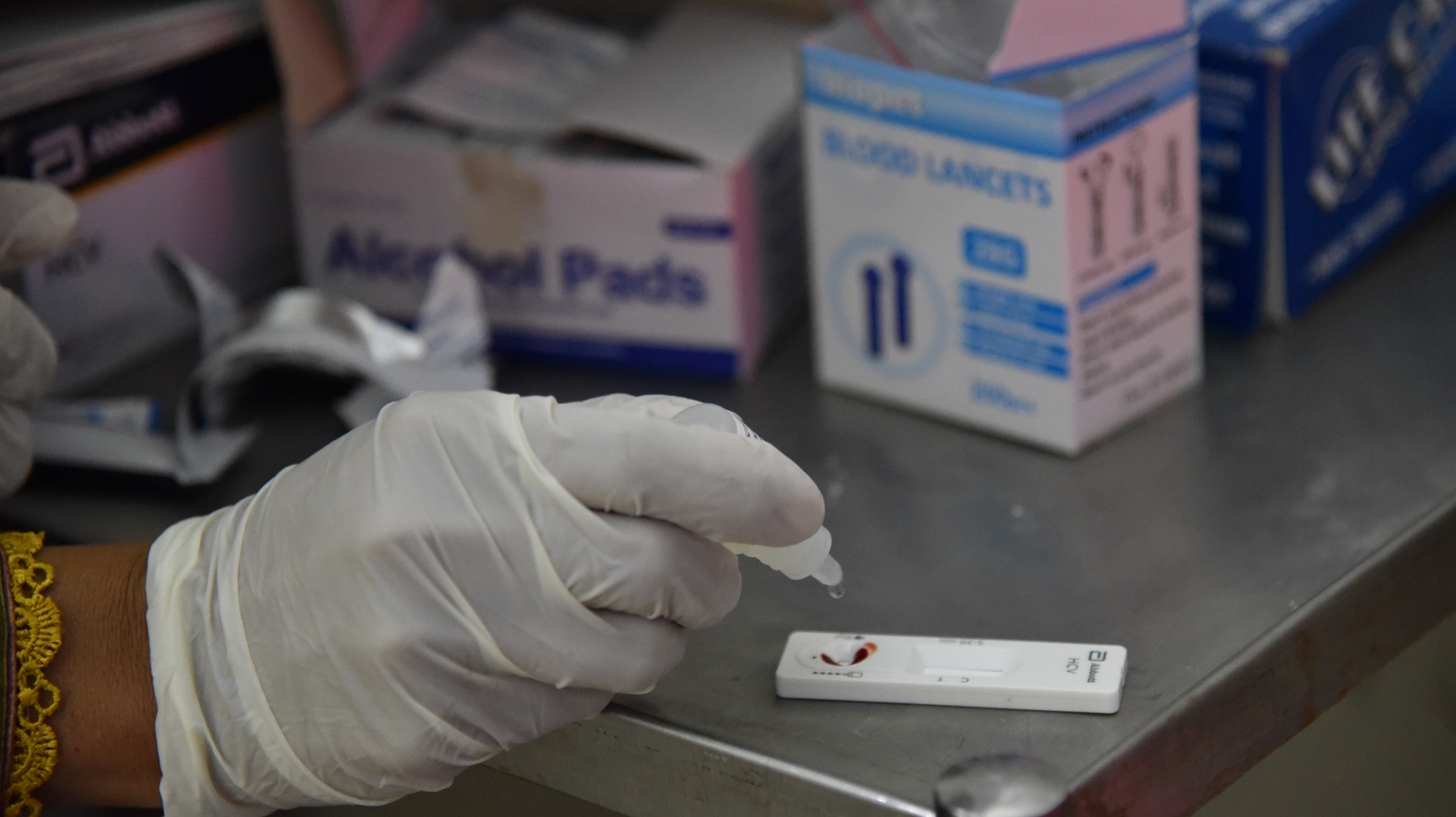On World Hepatitis Day, the World Health Organization reiterates its support for Pakistan to tackle the highest burden of hepatitis C globally, with 10 million of the 50 million cases worldwide.
 Only 25–30% of the people affected by Hepatitis B and C in Pakistan know it, meaning the vast majority do not undergo testing and do not seek life-saving treatment. Photo: WHO Pakistan/Sara Akmal28 July 2025, Islamabad, Pakistan – On the occasion of World Hepatitis Day, the World Health Organization (WHO) is calling for urgent action to fight a disease that continues to silently cause liver damage and cancer. With 10 million of the 50 million estimated cases worldwide, Pakistan has the heaviest burden of hepatitis C globally. The country also has an estimated 3.8 million people living with hepatitis B. Only 25–30% of the people affected know it, which prevents them from receiving life-saving treatment.
Only 25–30% of the people affected by Hepatitis B and C in Pakistan know it, meaning the vast majority do not undergo testing and do not seek life-saving treatment. Photo: WHO Pakistan/Sara Akmal28 July 2025, Islamabad, Pakistan – On the occasion of World Hepatitis Day, the World Health Organization (WHO) is calling for urgent action to fight a disease that continues to silently cause liver damage and cancer. With 10 million of the 50 million estimated cases worldwide, Pakistan has the heaviest burden of hepatitis C globally. The country also has an estimated 3.8 million people living with hepatitis B. Only 25–30% of the people affected know it, which prevents them from receiving life-saving treatment.
Under the theme “Let’s break it down”, WHO is urging policymakers and health authorities worldwide to simplify, scale up and integrate hepatitis services into national health systems – including vaccination, safe injection practices, harm reduction, and especially testing and treatment. The goal: ending hepatitis as a public health problem by 2030.
WHO reiterates its full support for Pakistan’s efforts to fight the disease, including the Prime Minister’s National Programme for the Elimination of Hepatitis C Infection. The Programme aims to test 50% of the eligible population (82.5 million people aged 12 years and above) and treat 5 million people by 2027.
“WHO will continue to fully support Pakistan in its journey to combat hepatitis and reinforce prevention, detection, and treatment, ensuring that we protect the most vulnerable populations to leave no one behind,” said WHO Representative in Pakistan Dr Dapeng Luo.
Hepatitis B and C are preventable and treatable. However, if left untreated, they can lead to medical complications – including liver cancer – and death. In Pakistan, the most common modes of transmission are unsafe procedures and materials used during blood transfusions – the result of unregulated private blood banks and a lack of universal screening, injections with re-used and non-sterile syringes and needles, surgical procedures, dental care, body piercing and tattooing, and shaving – including at barber shops.
Globally, chronic viral hepatitis causes 1.3 million deaths every year, mostly from liver cancer and cirrhosis. That equals 3,500 deaths every day.
WHO will continue to stand side by side with Pakistan to provide science-based guidance and support to strengthen prevention – including the vaccination of newborns against hepatitis B within 24 hours, and diagnosis and treatment for all, no matter where they live or who they are.
About WHO
Founded in 1948, WHO is the United Nations agency that connects nations, partners, and people to promote health, keep the world safe and serve the vulnerable. We work with 194 Member States in 150+ locations – so everyone, everywhere, can attain the highest level of health. WHO has been present in Pakistan – founding member of the Organization – since 1960. For more information, visit https://www.emro.who.int/countries/pak/index.html. Follow WHO Pakistan on Twitter and Facebook.
For additional information, please contact:
Maryam Yunus, National Professional Officer – Communications, WHO Pakistan, This e-mail address is being protected from spambots. You need JavaScript enabled to view it (copying This e-mail address is being protected from spambots. You need JavaScript enabled to view it ).
José Ignacio Martín Galán, Head of Communications, WHO Pakistan, This e-mail address is being protected from spambots. You need JavaScript enabled to view it




